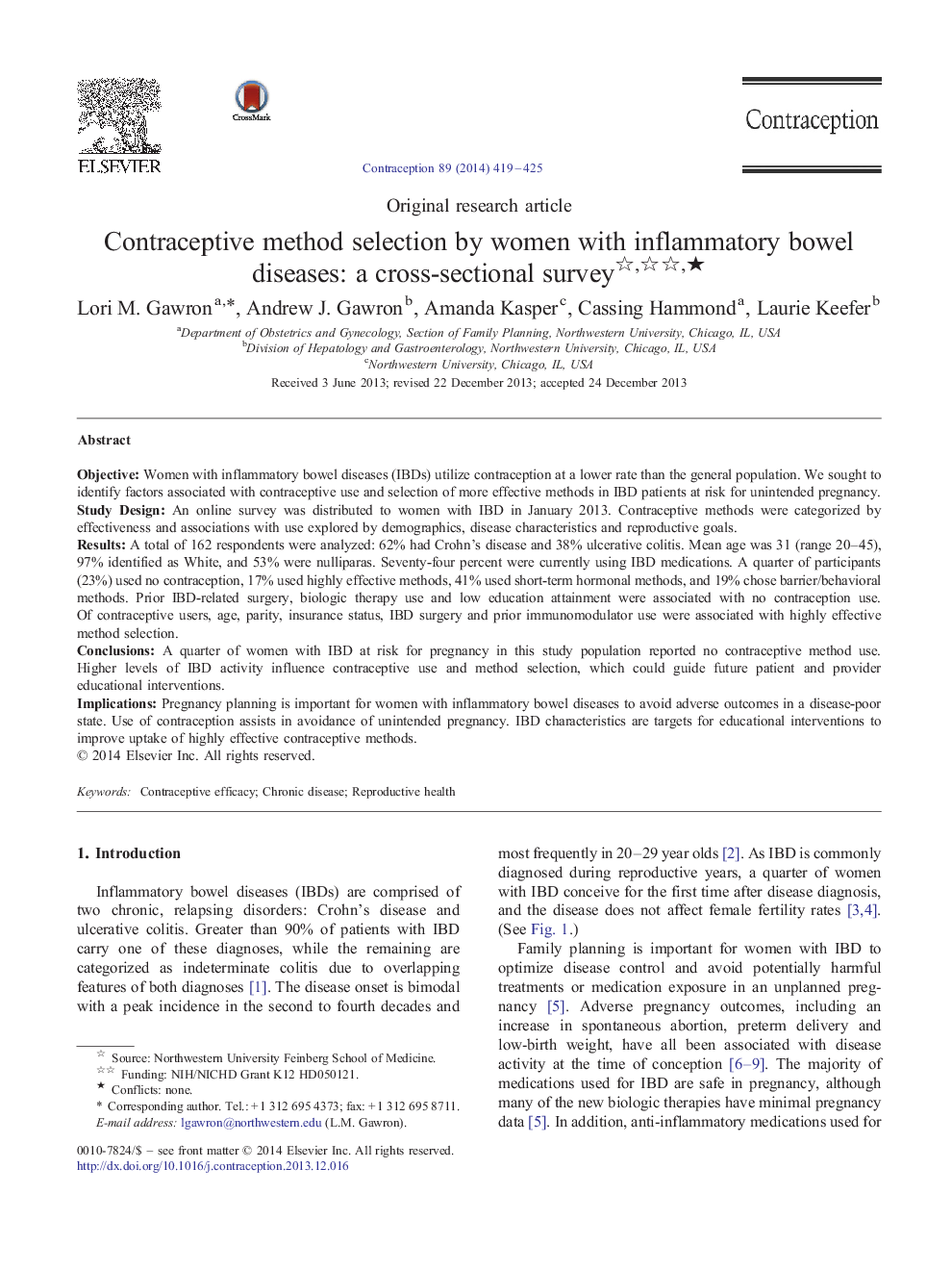| Article ID | Journal | Published Year | Pages | File Type |
|---|---|---|---|---|
| 3913120 | Contraception | 2014 | 7 Pages |
ObjectiveWomen with inflammatory bowel diseases (IBDs) utilize contraception at a lower rate than the general population. We sought to identify factors associated with contraceptive use and selection of more effective methods in IBD patients at risk for unintended pregnancy.Study DesignAn online survey was distributed to women with IBD in January 2013. Contraceptive methods were categorized by effectiveness and associations with use explored by demographics, disease characteristics and reproductive goals.ResultsA total of 162 respondents were analyzed: 62% had Crohn’s disease and 38% ulcerative colitis. Mean age was 31 (range 20–45), 97% identified as White, and 53% were nulliparas. Seventy-four percent were currently using IBD medications. A quarter of participants (23%) used no contraception, 17% used highly effective methods, 41% used short-term hormonal methods, and 19% chose barrier/behavioral methods. Prior IBD-related surgery, biologic therapy use and low education attainment were associated with no contraception use. Of contraceptive users, age, parity, insurance status, IBD surgery and prior immunomodulator use were associated with highly effective method selection.ConclusionsA quarter of women with IBD at risk for pregnancy in this study population reported no contraceptive method use. Higher levels of IBD activity influence contraceptive use and method selection, which could guide future patient and provider educational interventions.ImplicationsPregnancy planning is important for women with inflammatory bowel diseases to avoid adverse outcomes in a disease-poor state. Use of contraception assists in avoidance of unintended pregnancy. IBD characteristics are targets for educational interventions to improve uptake of highly effective contraceptive methods.
